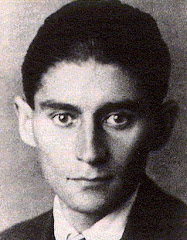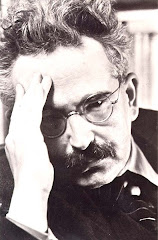In Plato's Theaetetus, a dialogue that attempts to answer the question, "What is knowledge?" truth is compared to a word. A word, after all, on a mere material basis, consists of letters, which together form syllables. The word "Socrates" is nothing but the conjoining of So-Cra-Tes. Yet, Socrates is not the same as Crasotes or Tesocra. And it is not the same, not simply because the arrangement of its parts are different, but because such a rearrangement tampers with its very essence, turning its significance into nonsense. Mathematics posits that A+B=B+A. But, words show that this transitive property of addition work only on a material level. On a more "spiritual" plane, if one may use the word "spiritual" without conjuring up the spirits, it is precisely the uniqueness of the arrangement that lends identity to the whole. The Talmud teaches that each person comes from Adam, and that as a result, we are at once unique, alone, in the image of the divine, etc., and, at the same time, are earthly, commonplace, and in the image of man. None of us can claim nobler birth than anyone else, since we all share the common ancestors of Adam and Eve. This tension, the Talmud argues should be embodied by two slips of paper, one of which we should keep in one of our pockets, the other in the other. One slip says, "For me alone was the world created." The other reads, "I am but dust of the earth."
Words, too, reflect this tension. But in our modern/post-modern world, our danger is not in realizing that we are dust of the earth, but in forgetting that our dust is filled with the breath of life. Words are just bags of sounds, and musical notes are just vibration frequencies. And yet the words we speak carry meaning, and the notes we bellow movement. Why? It seems that from the chaos and the void spread over the face of the dark and the deep, existance raises its mighty paw against existence (Here, I am indebted to Rav J. Derrida's essay on "Differance"). This resistance, which cannot perhaps be heard, emerges as the still small voice, the last echo of the shofar blast, which The Holy One blew on the primordial Dawning of the first of days. We can hear it only in the discrepancy between the syllables that compose the word and the word itself.
Tuesday, October 28, 2008
Subscribe to:
Post Comments (Atom)






No comments:
Post a Comment